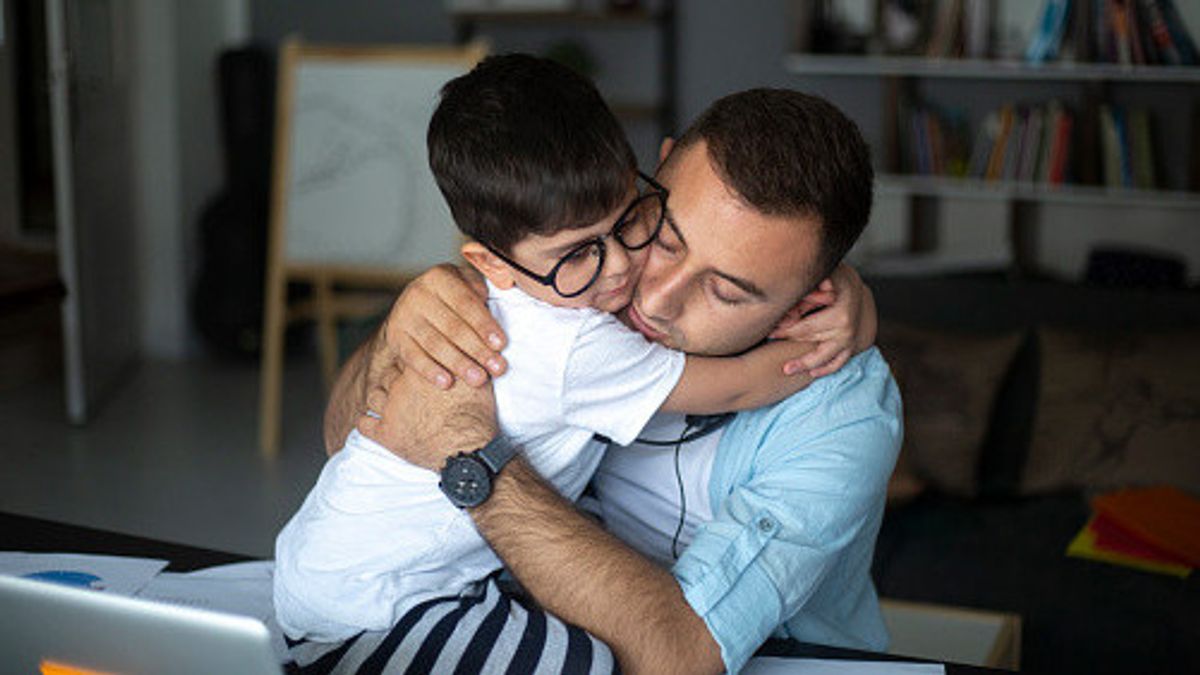YOGYAKARTA – Children focus on their development and growth while parents take care of them. But sometimes roles are reversed, a child gets demands to be responsible like adults. In simple terms, for example, they clean the house or reflect on family conflicts from a young age. This role reversal is known as parentification which risks negative emotional and mental aspects.
According to licensed clinical psychologist Becky Kennedy, Ph.D., parentification allows children to learn about their own feelings and needs. She added, reported by Parents, Thursday, July 28, parentification can threaten children's mental and emotional well-being.
There are two types of parentification, namely emotional parentification and instrumental parentification. Parentification occurs when the mother or father blurs the roles between parents and children.
“In a healthy parent-child relationship, parents care for the child and offer instrumental support (such as food, shelter, and daily necessities) and unconditional emotional support (such as love, affection, guidance, and rules),” explains Aude Henin, Ph.D., co-director of the Child Cognitive Behavior Therapy Program at MGH.

But when parents cannot consistently provide for the child's needs, a child can become a parent, and be in a position to have to care for the parent. Emotional parenting occurs when parents share secrets with their children or seek emotional comfort in their children.
Children experiencing emotional parentification, perhaps advising on adult situations, easing domestic fights, or comforting their siblings during difficult times. Usually children do not get emotional support from their parents.
Instrumental parentification occurs when assigning responsibility for practical tasks such as paying bills, cooking dinner, making grocery lists, booking medical appointments, and getting kids ready for school. This task may be beyond their ability and understanding.
Parents need to note that not all childhood responsibilities are considered parental. If you are not sure whether the parent-child interaction is going well. Henin suggests rethinking 'whose needs are being met?' or 'is the request age appropriate?'.
Henin also suggested the importance of parents assigning tasks to their children according to their age. This can build competence and responsibility, even improve their skills.
SEE ALSO:
Parentification risks, such as managing adult responsibilities that stress adults out. So do not be surprised if children are negatively affected by this pressure. When parents swap roles or with parenting parenting, children perceive the attachment system as a threat. Because children who are not raised by parents with parentification do not get validation from their feelings. They end up dealing with it on their own, which often leads to self-blame and self-doubt.
Other mental problems, such as chronic stress, anxiety, and depression can arise in response to parenting. Parentification has also been linked to aggressive behavior, academic problems, drug use, and social difficulties, according to The Developmental Implication of Parentification: Effects on Childhood Attachment, a 2012 study at Columbia University.
Henin added that the parentification effect can last into adulthood. It can lead to further dysfunction, such as anxiety about independence, fear of abandonment, anger and resentment, or avoidance of intimacy.
The English, Chinese, Japanese, Arabic, and French versions are automatically generated by the AI. So there may still be inaccuracies in translating, please always see Indonesian as our main language. (system supported by DigitalSiber.id)

















